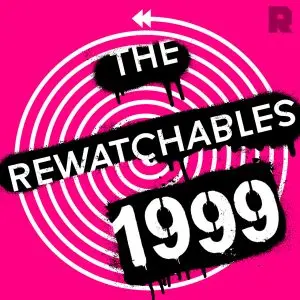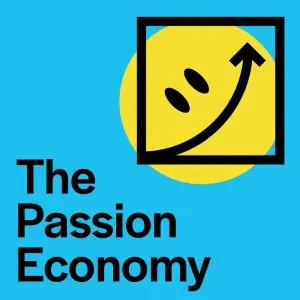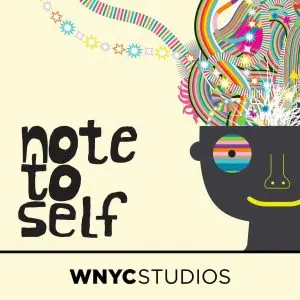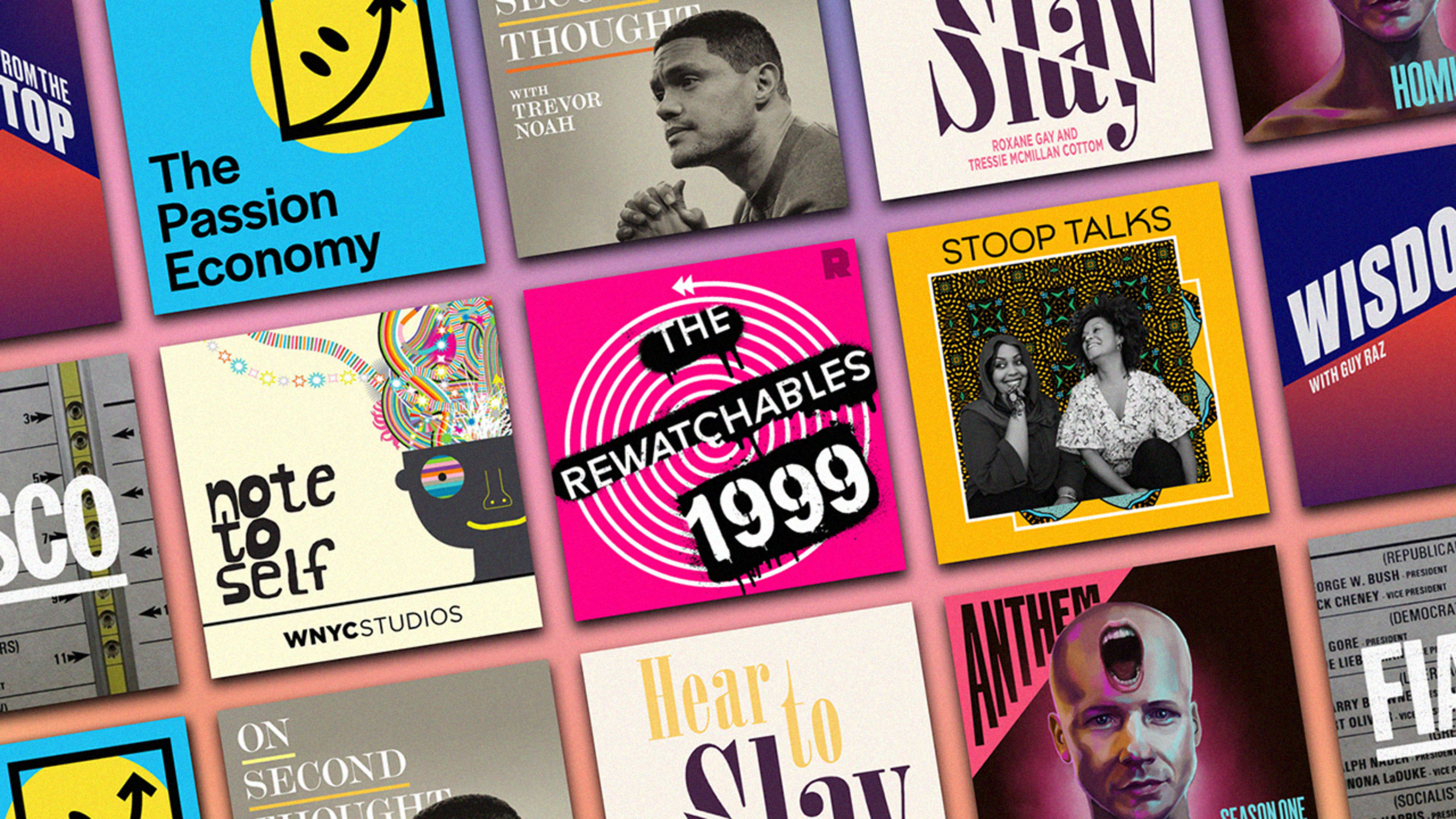What is a fair price for ridding oneself of podcast ads? Luminary CEO Matt Sacks is betting it’s $7.99 a month. At least that’s how much his just-launched podcast platform charges for its big-ticket roster of premium exclusives.
Podcasts, once merely the province of long-winded, starry-eyed monologists, have gone corporate in a big way, with several companies vying for which one will become the one true Netflix-for-podcasts. (A prospect Fast Company’s Melissa Locker sees as more a threat than a promise.) As Apple Podcasts slips in market share, platforms like CastBox, Stitcher, and the lavishly funded Himalaya have arrived, and Spotify has thrown down the gauntlet with its recent purchase of Gimlet Media and Anchor, two of the world’s mightiest podcast hubs.
Luminary made a splash in 2018 with its initial $40 million funding haul (which has since ballooned to $100 million) and a shrewd acquisitions strategy. Now that the platform is officially open for business, it’s time to see whether it justifies the hype.
Along with a network of exclusives, Luminary also offers free access to hundreds of existing shows and a recommendation algorithm. Unfortunately for listeners who dream of having just one podcast app on their phones, some key shows are missing. The New York Times has thus far declined to license galactic hit The Daily, and Spotify is withholding Gimlet Media shows like Reply All, along with those from Anchor or its other acquisition, Parcast. But Luminary is banking on its premium offerings being strong enough to be a draw on their own.
The company has just rolled out its initial batch of a dozen shows, including both originals and products poached from other networks. The robust slate of content includes On Second Thought: The Trevor Noah Podcast, Hear to Slay with Roxane Gay and Tressie McMillan Cottom, Love + Radio (formerly a hit at NPR), Wisdom from the Top from How I Built This creator Guy Raz, and Karamo from Queer Eye’s Karamo Brown. By the end of May, these shows are scheduled to be joined by podcasts from Lena Dunham, Slow Burn co-creator Leon Neyfakh, and more. Surveying all the attached talent helps illuminate where some of that seed money is going–before Luminary unveils its other 25-30 planned podcasts later this year.
But is the current premium lineup enough to entice consumers already drowning in options for content streams? Well, it depends on how much those consumers love Trevor Noah. In order to get a better idea of Luminary’s overall appeal, I decided to binge through five podcasts in the network’s arsenal. Let’s go:

The show: The Rewatchables 1999
The hosts: The Ringer’s Bill Simmons
The pitch: It’s exactly like Simmons’ good-movies podcast, The Rewatchables, but focused on one year in particular.
The verdict: 1999 was famously a knockout year at the box office–ahoy, The Matrix, Election, Being John Malkovich, and 10 Things I Hate About You–so it’s a natural bundle for Simmons to diligently unpack, possibly before moving on to 2000 next season, and so on. On the first episode, Simmons is joined by frequent co-hosts Sean Fennessey and Chris Ryan (also from The Ringer) who have an easy banter honed over many on- and off-mic conversations. Listening to the trio pick apart American Pie in the premiere episode sets the stage for how much talk will follow about the differences in life, tech, and what you could get away with in movies between 1999 and now. In short, this is exactly the kind of complementary podcast that could serve as the Patreon bonus version of The Rewatchables, had Simmons chosen to go that route instead.

The show: Stoop Talk
The hosts: Journalists Leila Day and Hana Baba
The pitch: A frank look at all things black culture in America and around the world.
The verdict: An outgrowth of the Stoop podcast and local radio show in San Francisco, which was selected for NPR’s Storytelling Workshop, Stoop Talk finds Baba and Day in probing interview mode with celebrity guests like Killer Mike, who appears in the first episode. The conversation is free-flowing and relaxed, especially considering how uncomfortable the subject matter can get. A debate about usage of the n-word vs. the expression “the n-word” reveals some tension between the hosts’ preferences and Killer Mike’s, and the discussion ultimately ends with Mike admitting that he avoids saying the word “bitch” when listening along to Too Short with his mom, a thing that apparently happens. It’s a promising start for a show with a distinct perspective and a recurring segment asking guests what they consider to be “the Sounds of Blackness.”

The show: The Passion Economy
The hosts: The New Yorker’s Adam Davidson
The pitch: The co-creator of NPR’s Emmy-winning podcast Planet Money talks to “regular people who have figured out how to thrive in an economy that seems stacked against us.”
The verdict: Davidson claims that he conceived of Passion Economy before launching Planet Money a decade ago, and he spends the first episode describing the roots of the project and his reasons for wanting to pursue it. He paints the model of workers finding a stable job in a strong corporation that keeps paying them more and more forever as a fluke of the 20th century, and a historical anomaly. Between automation and outsourcing, the entire landscape of the economy is shifting beneath the feet of the U.S. workforce, and Davidson wants to prepare people for the new reality–and its new opportunities. The Passion Economy switches gears from the Fortune 500 CEOs featured on Planet Money to center more relatable stories of people making the new economy work for them, including a drug dealer turned fitness instructor. Davidson is an expert interviewer and yarn-spinner, and his new podcast seems designed to inspire people to figure out the next phase of their careers, no matter their circumstances.

The show: Anthem: Homunculus
The pitch: John Cameron Mitchell, writer-director-star of Hedwig and the Angry Inch and much more, brings his edgy-camp (but heartfelt!) musical storytelling into the scripted podcast space, with the help of Topic Studios.
The verdict: It takes less than five minutes of Anthem: Homunculus to realize how much work went into it. The beginning sets up the premise: Mitchell’s character Ceann is a musician of little means who is starting a musical podcast marathon to crowdfund the removal of his brain tumor. Once Kian’s first song begins, listeners should lock into Mitchell’s flinty songwriting style, which wouldn’t sound out of place in one of his movies. Although Kian has laughably few listeners and crowdfund contributors at first, the tally rises with each verse. Future episodes promise singing cameos from musical theater icons (yes, actual icons) like Patti Lupone and Glenn Close over the course of its 30 songs. The story deftly weaves between poignant and funny, the music moves, and the narrative is packed with clever throwaway lines like, “My tumor is located in the part of my brain that produces empathy. So fuck y’all.” This exclusive is almost guaranteed to bring people to Luminary because John Cameron Mitchell fans will absolutely not want to miss it.

The show: Note to Self
The hosts: Author and media impresario Manoush Zomorodi
The pitch: The hit show from WNYC that focuses on remaining a human being while contending with technology
The verdict: Zomorodi came to national attention in 2015 with a social experiment that spawned the book Bored and Brilliant. Since then, she created the WNYC podcast Note to Self, which expanded her focus on the attention economy into all aspects of how humans interact with technology. After splitting amicably with WNYC in 2018, Zomorodi and her business partner have now started their own company (Stable Genius Productions) and given Note to Self a new home at Luminary. In the first episode of the new version, Zomorodi is in her element, talking with Dr. Elizabeth Englander about the thorny subject of screen time for kids. For a lot of parents, this has long been the topic of the modern era, since it’s hard to set boundaries for children on devices that adults ourselves often struggle to compartmentalize. It’s too broad a topic to resolve in one episode, but it does yield a fascinating conversation and at least one highly applicable tip: Explaining to your early-teen kids that nobody creates addictive apps strictly out of the goodness of their heart. The only knock against the show, however, is that anybody truly struggling with where to direct their attention in the face of overwhelming technology might want to spend more time away from podcasts.
Recognize your brand’s excellence by applying to this year’s Brands That Matter Awards before the early-rate deadline, May 3.
